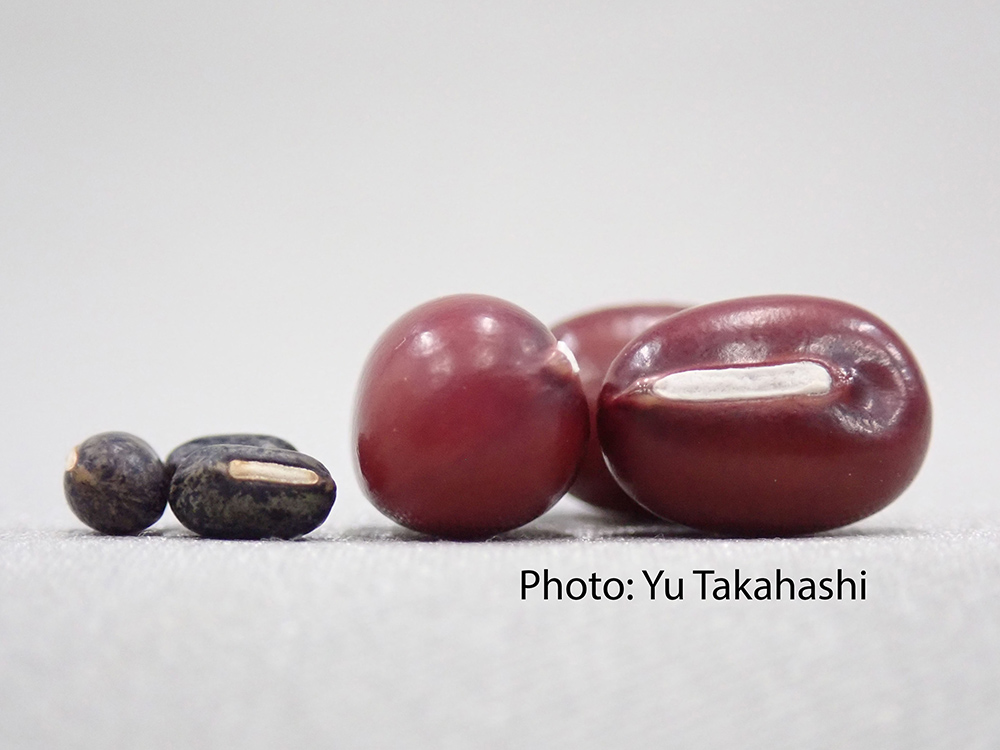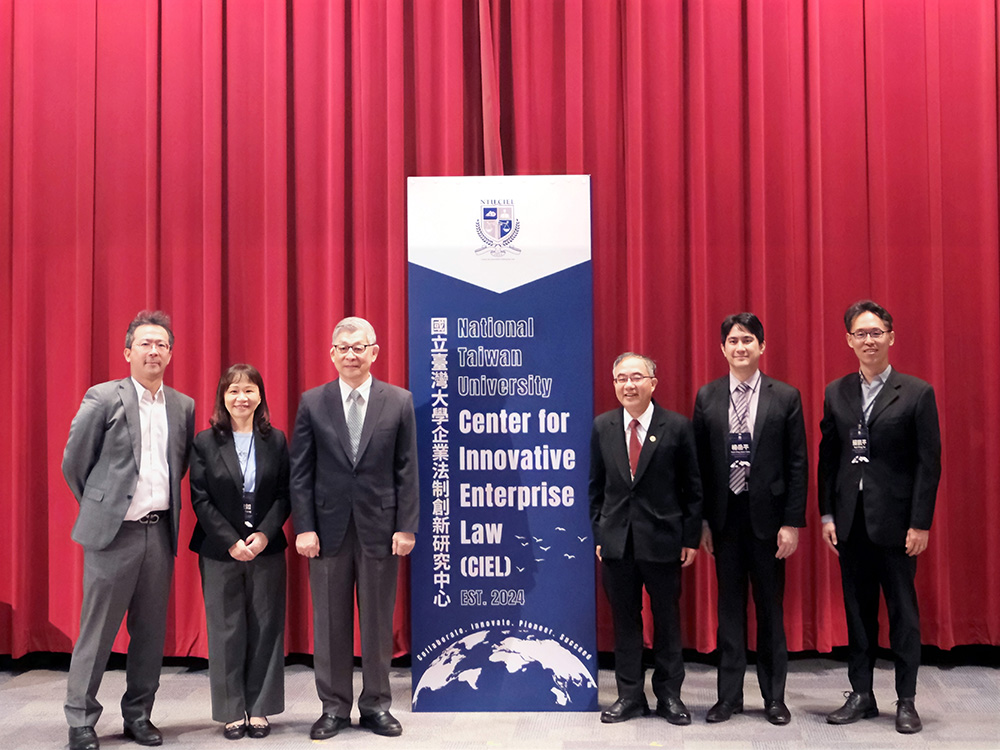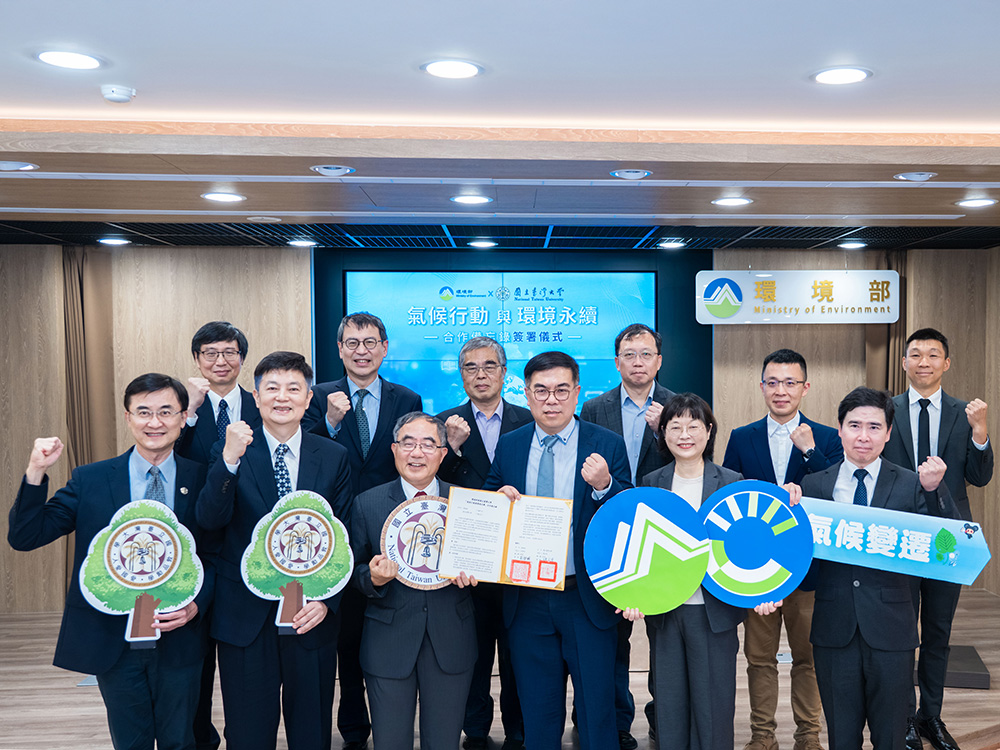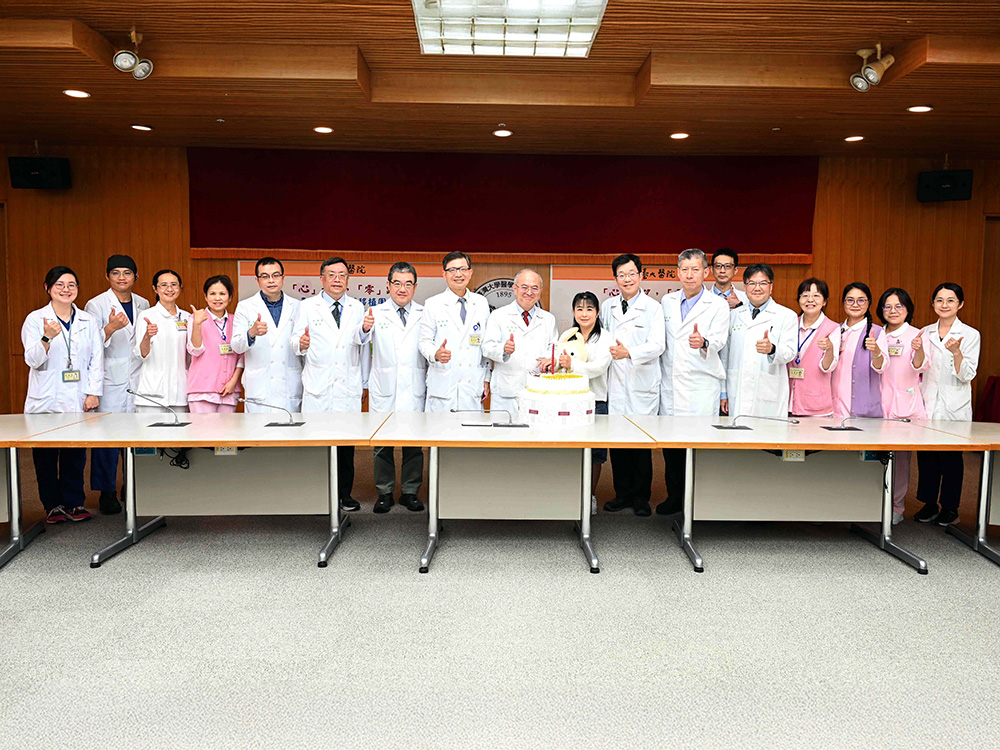
A Distinguished Global Research Center Established at NTU under Trilateral Cooperation
瀏覽器版本過舊,或未開啟 javascript
請更新瀏覽器或啟用 javascript
Spotlights
Prof. Chi-Tai Fang (front row, first from right) and the team members.
Prof. Chi-Tai Fang (方啓泰) of NTU’s Institute of Epidemiology and Preventive Medicine and his research team successfully identified the causes for the inconsistent results of oil-in-water emulsion-adjuvanted influenza vaccine trials, shedding new light on the design of future influenza vaccines. Their findings were published in the prestigious Nature Communications on January 16, 2020. Young children are particularly vulnerable to complications from influenza, but the standard inactivated influenza vaccines are poorly immunogenic in young children. The oil-in-water emulsion-adjuvanted vaccine is a new generation influenza vaccine that offers the potential to enhance immunogenic efficacy; however, the clinical trials showed inconsistent results, and vaccine developers have been unable to identify the reasons for the inconsistency. These obstacles have thus severely delayed the research, development, and production of the vaccine.
Prof. Fang and his team meta-analyzed the efficacy data of over 15,000 participants and found that the baseline serostatus of the vaccine recipients had not been taken into account in previous studies. The team found that the baseline serostatus of participants would impact vaccine immunogenicity and protection. This study undertook the world’s first systematic review and meta-analysis on the use of oil-in-water emulsion adjuvants in seasonal influenza vaccines for young children. According to the results, adjuvanted influenza vaccines provided significantly better protection for healthy, unvaccinated children under the age of three, reducing the infection rate by 74%. However, for older children who had received standard inactivated influenza vaccines or had already been infected with influenza, the adjuvanted influenza vaccines did not show superior results, and thus standard vaccines are sufficient to offer favorable immunogenicity to these groups. These findings not only highlighted the necessity to factor in the patient’s serostatus but also served as important references for future vaccine development.
Every member of the research team is an advisee of Prof. Fang, including Yu-Ju Lin (林育如), the first author of the paper and senior technical specialist at the Center for Disease Control, Ministry of Health and Welfare; Ph.D. student Chiao-Ni Wen (溫巧尼); and Ph.D. candidate Yi-Hsuan Chen (陳怡諠). This research was funded by the Center for Disease Control of the Ministry of Health and Welfare.
This article is also featured in No. 79 of NTU Highlights (August 2020).
To read the paper, please visit: https://www.nature.com/articles/s41467-019-14230-x.
About Prof. Chi-Tai Fang: https://scholars.lib.ntu.edu.tw/cris/rp/rp06639?&locale=en.

A Distinguished Global Research Center Established at NTU under Trilateral Cooperation

Collaborative study between NTU and Japan uncovers the origin of Adzuki Beans and agriculture in Japan

NTU Launches Center for Innovation in Enterprise Law—with Forum Highlighting Trump’s Policy and Legal Shifts Amid Geopolitical Tensions

NTU and Ministry of Environment Sign MOU to Advance Net-Zero Transition and Environmental Resilience

NTU Hospital’s Cardiac Transplant Team Pioneers Beating Heart Transplant with Zero Ischemic Time
Current Spotlights